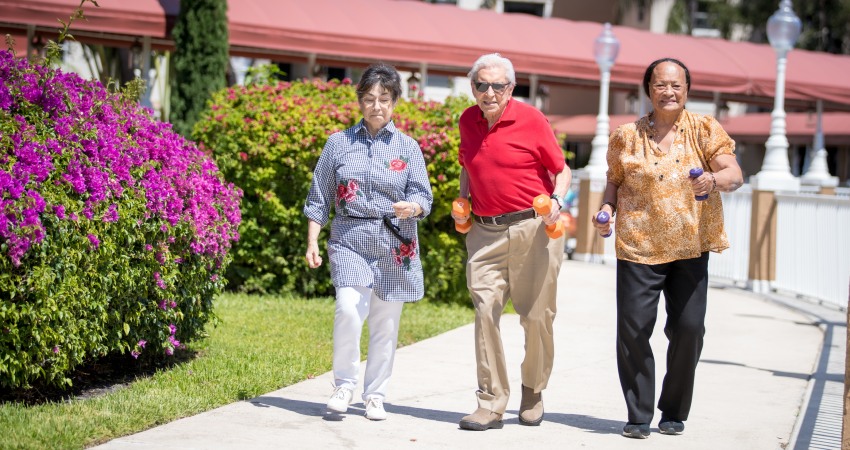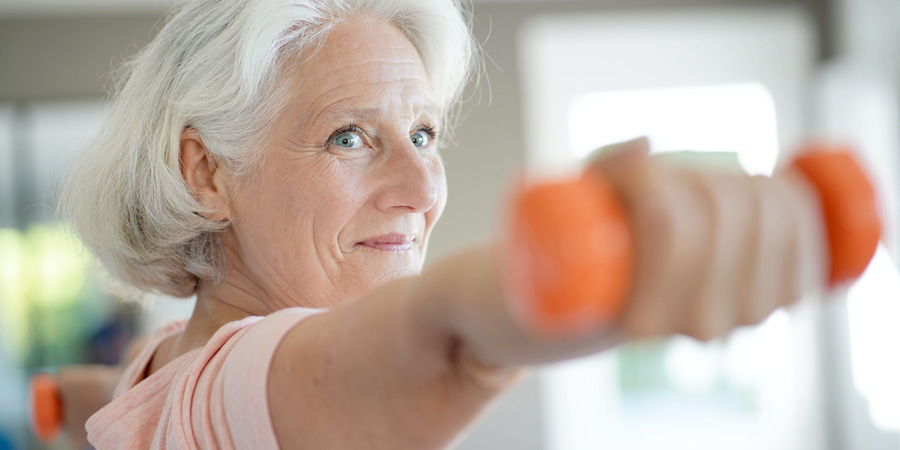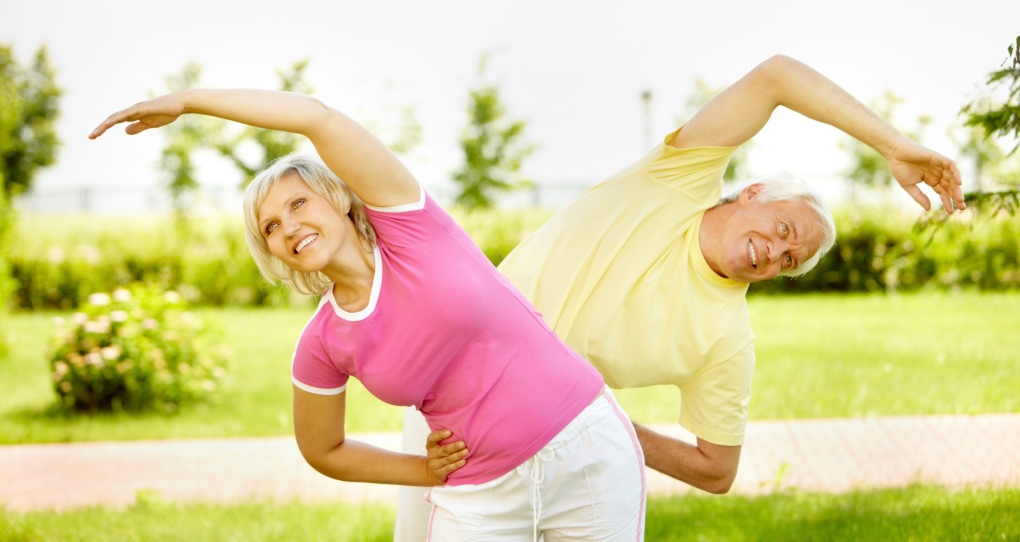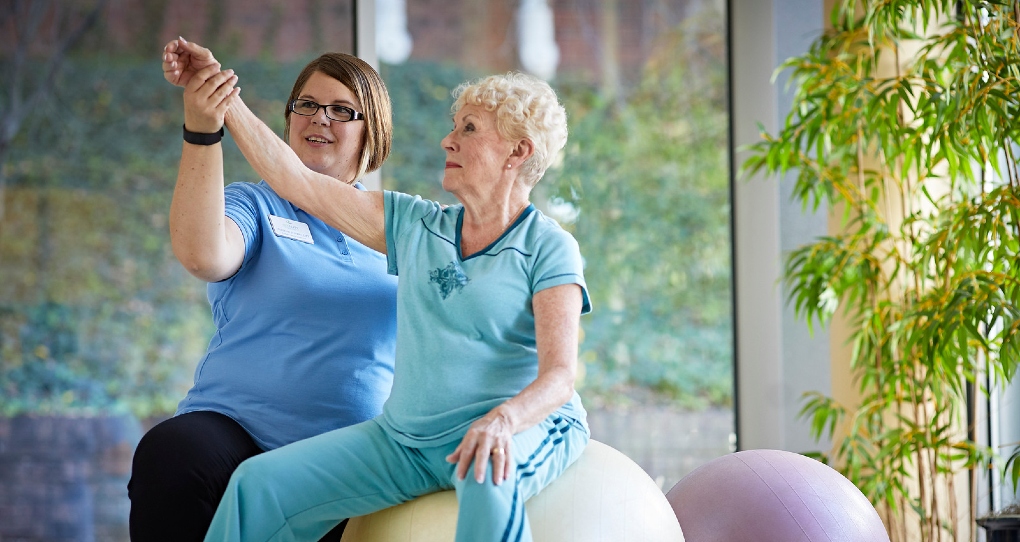What is the Activities Specific Balance Confidence Scale?
June 11, 2021
Balance: It’s Not 100% Anymore, But Is It a Problem?
What is balance confidence?
Balance is important, but how do you know if you have “good” balance? At Ageility, we define good balance as the ability to easily maintain your body’s position without tripping or stumbling. But many adults lack good balance; 25% of older adults say they have difficulty with balance or need special equipment (or another person) to assist them when walking. After age 75, nearly 40% struggle with balance.
So why is balance so important? Balance problems increase the risk of falls, which increase risk of injury. One in four seniors report falling each year, and over 20% of those falls required medical attention due to injury.
That’s why Ageility therapists don’t just help older adults recover AFTER a fall. We also use various assessments to discover risk BEFORE falls and injury ever occur. One of our go-to tools, which you can use at home, is the Activities-Specific Balance Confidence Scale.
How is ABC scale score calculated?
The ABC Scale is a simple tool to measure your balance confidence. It asks you to rate your confidence in completing everyday activities while remaining steady on your feet. For each activity on the list, you write your confidence from 0% to 100%. 0% means you’re not confident at all, and you’re worried about falling, and 100% means you’re completely confident and trust your balance.
Take the ABC Scale for Balance!
As you rate your confidence for each item below, go with your first instinct because it’s usually the most accurate. If you don’t do one or more of the activities, imagine yourself in that situation and make your best guess. If you use a walker or cane or lean on someone when you walk, rate your confidence when using that support. For items that include the phrases up or down, into or out of, or onto or off, think about whether your confidence level varies based on which direction you go in. For example, you may be more confident in your ability to walk up the stairs than down them. In that case, you would list the lower confidence level of the two (walking down the stairs).
How confident are you that you will NOT lose your balance or become unsteady when you…
…walk around the house? ____%
…walk up or down stairs? ____%
…bend over and pick up a slipper from the front of a closet floor ____%
…reach for a small can off a shelf at eye level? ____%
…stand on your tiptoes and reach for something above your head? ____% …stand on a chair and reach for something? ____%
…sweep the floor? ____%
…walk outside the house to a car parked in the driveway? ____%
…get into or out of a car? ____%
…walk across a parking lot to the mall? ____%
…walk up or down a ramp? ____%
…walk in a crowded mall where people rapidly walk past you? ____%
…are bumped into by people as you walk through the mall?____%
… step onto or off an escalator while you are holding onto a railing? ____%
… step onto or off an escalator while holding onto parcels such that you cannot hold onto the railing? ____%
…walk outside on icy sidewalks? ____%
How do you score activity specific balance confidence scale results?
Now it’s time to determine your results! Add up your score from each line, and then divide by 16 to determine your percentage. If you scored:
- 80% or higher, you’re in good shape, have a “high level of physical functioning” and are at low risk for falls. Continue to move and do strength exercises to maintain your balance.
- 50-80%, you’re considered to have a moderate level of physical functioning. However, studies have shown that any score below 67% is predictive of a future fall – meaning you’re very likely to have a fall soon that could lead to problems. At this stage, we encourage you to stay in regular contact with your physical therapist or doctor and to exercise often to improve your strength, stamina and balance.
- Below 50%, you’re considered to have a low level of physical functioning, and are at the highest risk of a fall. But there’s no need to panic. Now that you know there’s a problem, you can make a plan to address it. You should call your doctor or physical therapist to express your concerns and seek advice. With a strategy, an exercise routine and possibly an assistive device or two in place, you can stay active – safely.
Ageility can help you improve balance and reduce falls
Whether you scored high or low on the Activities-Specific Balance Confidence Scale, Ageility can help. Our specialists can explain what your score means and make recommendations for you to improve your balance. Then, through our fitness and rehab programs – along with our state-of-the-art balance tools and technologies – we can develop a customized plan to help you maintain or gain strength and balance, according to your specific needs.
Contact Ageility at [email protected] or find an Ageility location near you to learn how we can assist you!




